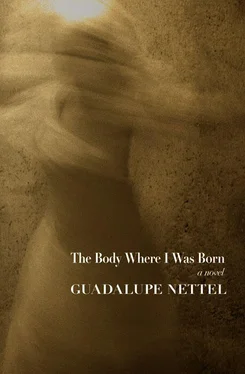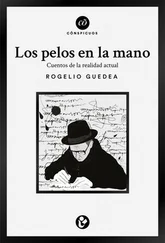“Anyway, come over one of these days and I’ll introduce you,” he suggested before leaving.
My bewilderment was such that when the lines started forming in front of the door, I remained in the same spot in the middle of the playground. I had to struggle to piece together the fragments of my awareness to make it back to homeroom. I had seen Cello’s friend many times and could easily place him. He was, in my opinion, one of the most attractive boys in school, which made the supposed confession seem unlikely. Why would this boy, who had his choice among the different African and blond queens of the school, have his eye on one of the untouchables who surreptitiously prowled the playground? I couldn’t believe it, so I decided to seek counsel. Mireille and Kathy looked at each other in astonishment. They too easily placed the candidate.
“It doesn’t makes sense,” I said, trying to be realistic.
“But neither does love,” responded Mireille, in a decidedly optimistic tone. “Even if you don’t know it,” her cheese-mouth added, “you’re a very pretty girl.”
“Maybe he’s interested in Mexico,” remarked the less enthusiastic Reunionese girl.
It had never occurred to me that being Mexican could make me interesting to a boy in the 4ème .
Then I remembered the dialogue with Marcela in Villa Olímpica, in front of Oscar’s building, a few years before. I didn’t want the same thing to happen again and to make Sebastien feel rejected without giving him a chance.
“Why don’t you write him a letter?” Kathy suggested. Her friend agreed.
“A letter! Why?” I asked, taken aback.
“To tell him that you like him too, but that you’ve never gone out with a guy and don’t have a lot of experience.”
I had never mentioned my experiences with boys to those two. I told myself that if it was so obvious to them that I was a stupid pucelle , it would be to him too. Why add insult to injury?
“That way you break the ice,” assured Kathy. “If you want we can help you, but not with spelling.”
That same afternoon, at lunchtime, instead of meeting up with Blaise in the study hall, I sat down on a bench to draft the famous letter. The girls reviewed it later and changed a few irrelevant phrases. I finished cleaning it up after dinner, while pretending to focus on my homework. I decorated the page with butterfly stickers that I had in my desk drawer to symbolize what I was feeling inside. That night, when the lights were turned off in our living room, I told my brother what had happened. We weren’t very close in those days, but we always had the unspoken rule that for things serious and imponderable we could count on each other. He patiently listened to the details of my account and to a summary of the letter.
“You don’t have a chance,” he said emphatically. “Sebastien has never taken you seriously.”
“How do you know?” I asked, trying to hide how offended I was.
“He’s in the 4ème , he’s the best rugby player in the school, all the girls are after him. You’re in the 5ème , you’re a pucelle , and besides, you’re pretty ugly.”
“You’re a minot in the 6ème with a pea-brain,” I retorted, “who doesn’t know anything about love and how illogical it is.”
I couldn’t sleep that night. With a light beneath the quilt, I spent almost eight hours reading The Ice People by René Barjaval, a novel Blaise had recommended to me. Even though it was science fiction and took place at the North Pole in a future era with great advances in space technology, the story could not have been more romantic. It only heightened my level of expectation about the encounter I believed to be in the making.
I gave Cello the letter the next day, in the cafeteria, and he looked at me with a complicit smile.
“How about you come over and I’ll introduce you right now?” he suggested. I didn’t have the nerve for that; the letter had used up all the bravery at my disposal.
Three days went by before I had any word from the boys. As a precaution, I spent those recesses with my council. I was with them when we saw Cello pass the letter to his friend. After all that time he hadn’t done it yet! Sebastien read it out loud, and from afar I recognized some of my carefully chosen words on his lips. By the time he finished, both of the boys were bent over in laughter next to the playground gate. I didn’t know where to hide.
“Couple of idiots,” said Kathy, indignant.
My bad advisors made me turn away without saying a word about what had just happened and, worst of all, without explaining to me how I was supposed to sit at the same table as Cello at lunch, that afternoon and all afternoons to come. How was I supposed to keep coming to school?
From what I have been able to observe, it seems that when an event hurts us there are two general tendencies in confronting it: the first being to go over it an infinite number of times, like a video we project again and again on a screen in our minds. The second is to tear apart the filmstrip and forget indefinitely the painful event. Some of us employ both techniques in the editing of our memories. I know that at first the episode of the letter to Sebastien obsessively occupied my thoughts and now, when I try to conjure it up, the details escape me. I know, for example, that I avoided the cafeteria for several days. I preferred fasting to the humiliation of another encounter. I even asked the principal to assign me to another lunch table, but since I didn’t dare explain the real reasons for my request, it was refused as insubstantial. Sooner or later I had to return and somehow, with all the strength in the world, keep my head held high. Luckily, Cello never held it against me, and the only time he brought it up I pretended that it wasn’t the least bit important to me. The art of craftiness has always been one of the trilobite’s greatest weapons. As far as I know, Blaise never knew anything about the letter. If he did, he kept it to himself in friendly silence.
Blaise was the son of a famous French cartoon artist who lived in Paris and had lived there for years. Blaise and his mother lived in Aix, but in a much cleaner and nicer neighborhood than ours. Blaise liked reading graphic novels and was well informed about the new works as well as the classics of the genre. He was also interested in literature, but not to the same degree. Now and then we’d exchange reading recommendations, always thinking of the other’s interests and tastes. I suggested he read Émile Ajar’s The Life Before Us and The Portrait of Dorian Gray , but would never have lent him The Four Daughters of Doctor March , as I knew perfectly well that it would have disgusted him to the point of nausea. He recommended Brave New World by Aldous Huxley and the book by René Barjaval, but never suggested The Hobbit , which he kept beside his bed. My trust in Blaise was also selective. I abstained from telling him about the letter affair, but I revealed to him aspects of my life I’d never told anyone, such as how much I liked writing. I told him about how I’d earned the respect of my classmates in elementary school in Mexico by writing horror stories about them. I even read him a fragment of my diary.
“You should seriously write for real,” he suggested, as if he were an expert. “Why don’t you write a novel about your life?”
“But I’m only thirteen! Nothing’s happened to me yet.”
“Write about what is happening to you right now.”
What I didn’t tell him or anyone else was the story of my father. It was a way to protect us from the judgment of others. For my classmates, my father became a Lacanian psychologist who lived in Chula Vista in San Diego, California. We spent half our summers in Mexico and the other half with him. That’s how I responded whenever someone asked me, but I never said so spontaneously or because I enjoyed lying. Nevertheless, that’s what inspired the mimetic habit that has since governed a good part of my life. It wasn’t hard to speak about San Diego. I’d been there several times for ophthalmologist consultations and to visit my aunt. But beyond describing the landscape, imagining a parallel life wasn’t such an easy task. To sustain it, I needed to remember each and every one of the facts and descriptions I’d uttered previously. Any discrepancy could raise suspicions. And don’t forget that my brother — even though he was in a different class and year — could contradict me with his own version of the facts. Rather than exciting, the entire situation ended up being pretty uncomfortable in the long run. To tell you the truth, I would have liked nothing more than to be finished with the pseudo-secrecy I had placed myself in. That kind of isolation — when pooled with the hormones of adolescence that were operating in my brain with cataclysmic force — had me spending entire afternoons collapsed on my mattress with my face buried in the pillow, sobbing violently and wanting to withdraw from the world. It was then my mother decided to hang green blinds from both our beds, which we could pull shut to delineate our own territory, and which we called the “simulacra of privacy.” It was no longer necessary to have a flashlight under the covers in order to read, and I returned to self-gratification with the zealousness of one seeking salvation.
Читать дальше












